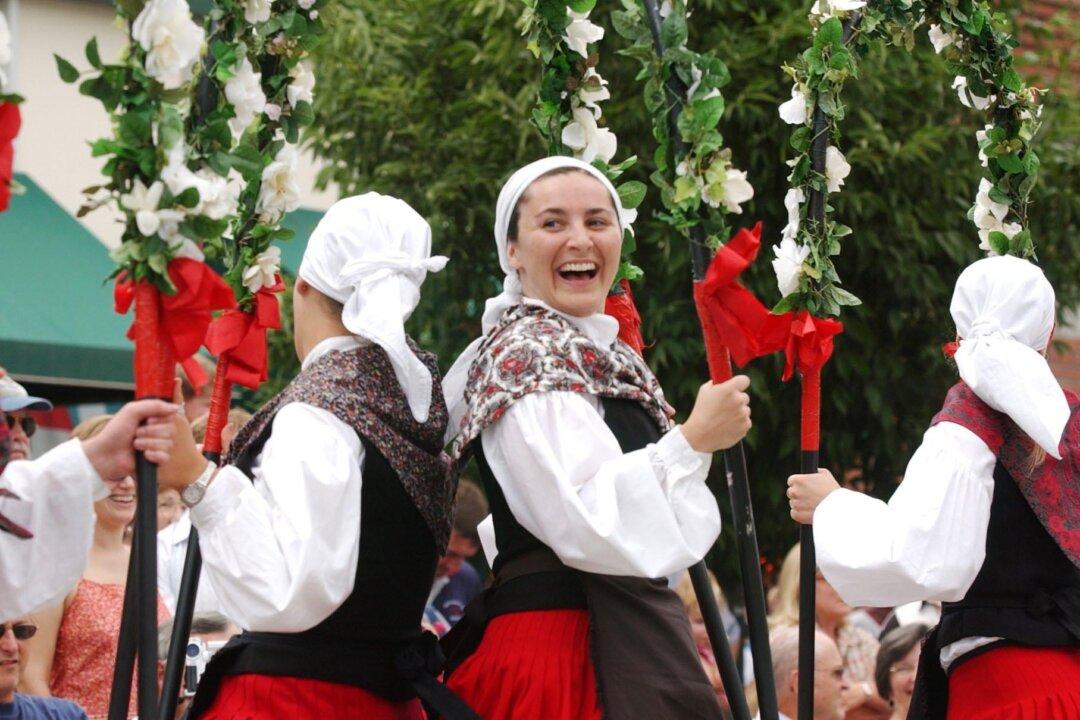BOISE, Idaho — Idaho is home to one of the biggest concentrations of Basques in the United States, and the best way to learn more about that heritage is by visiting the Basque Block, tucked in the center of the state’s capital city.
Basques began settling in southwestern Idaho as early as the late 1800s, with many coming from the Basque region on the border of Spain and France to work as sheepherders in Idaho. Nearly 8,000 residents of the Gem State identify as Basque today.
Boise preserved the Basque Block’s rich history with a massive conservation effort during the early 2000s. Green, red and white Basque flags now adorn the streetlights, and the street — which lacks raised sidewalks and curbs — is frequently closed to cars thanks to festivals celebrating Basque culture.







